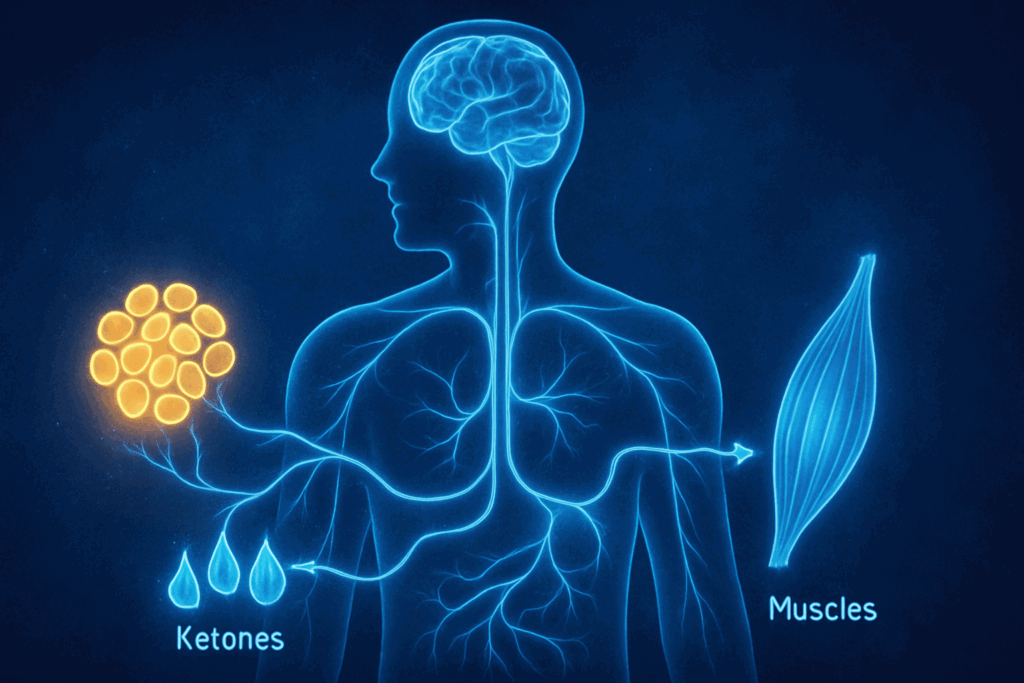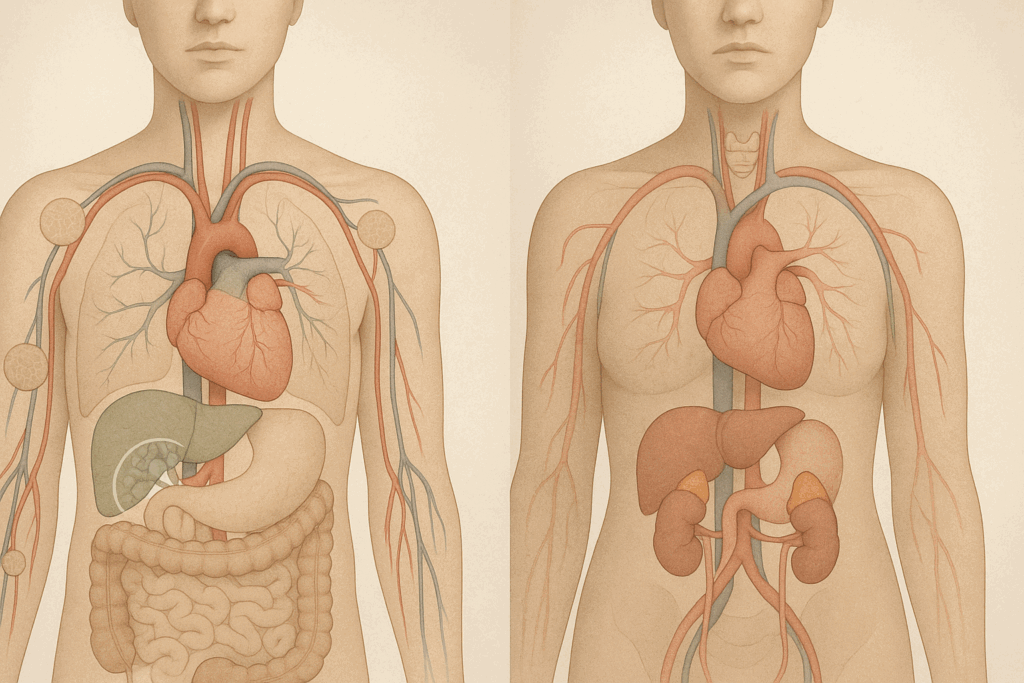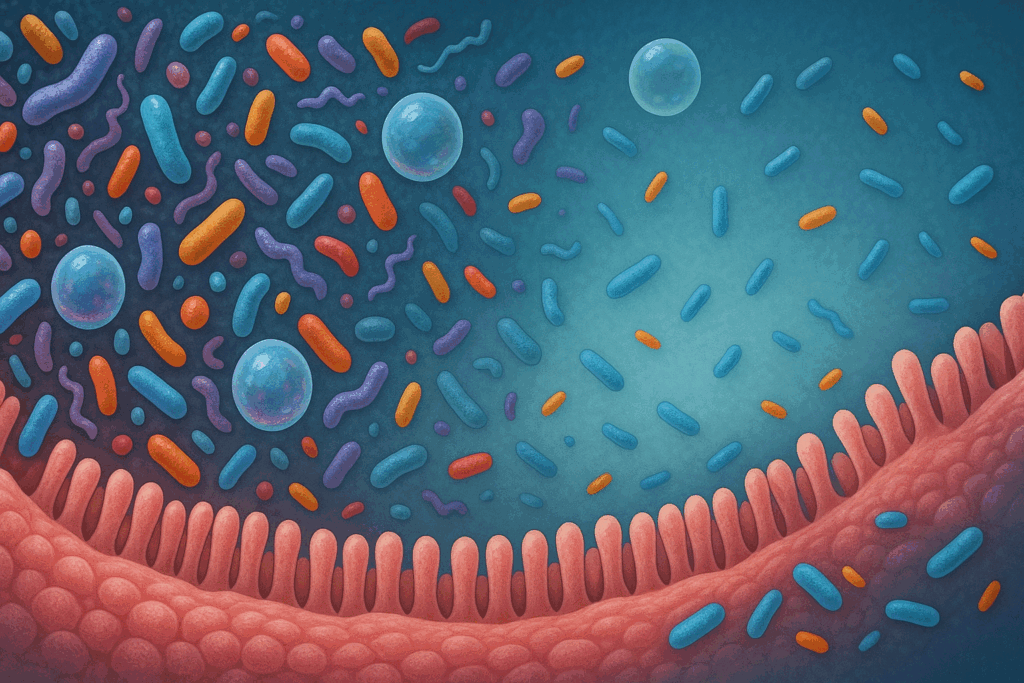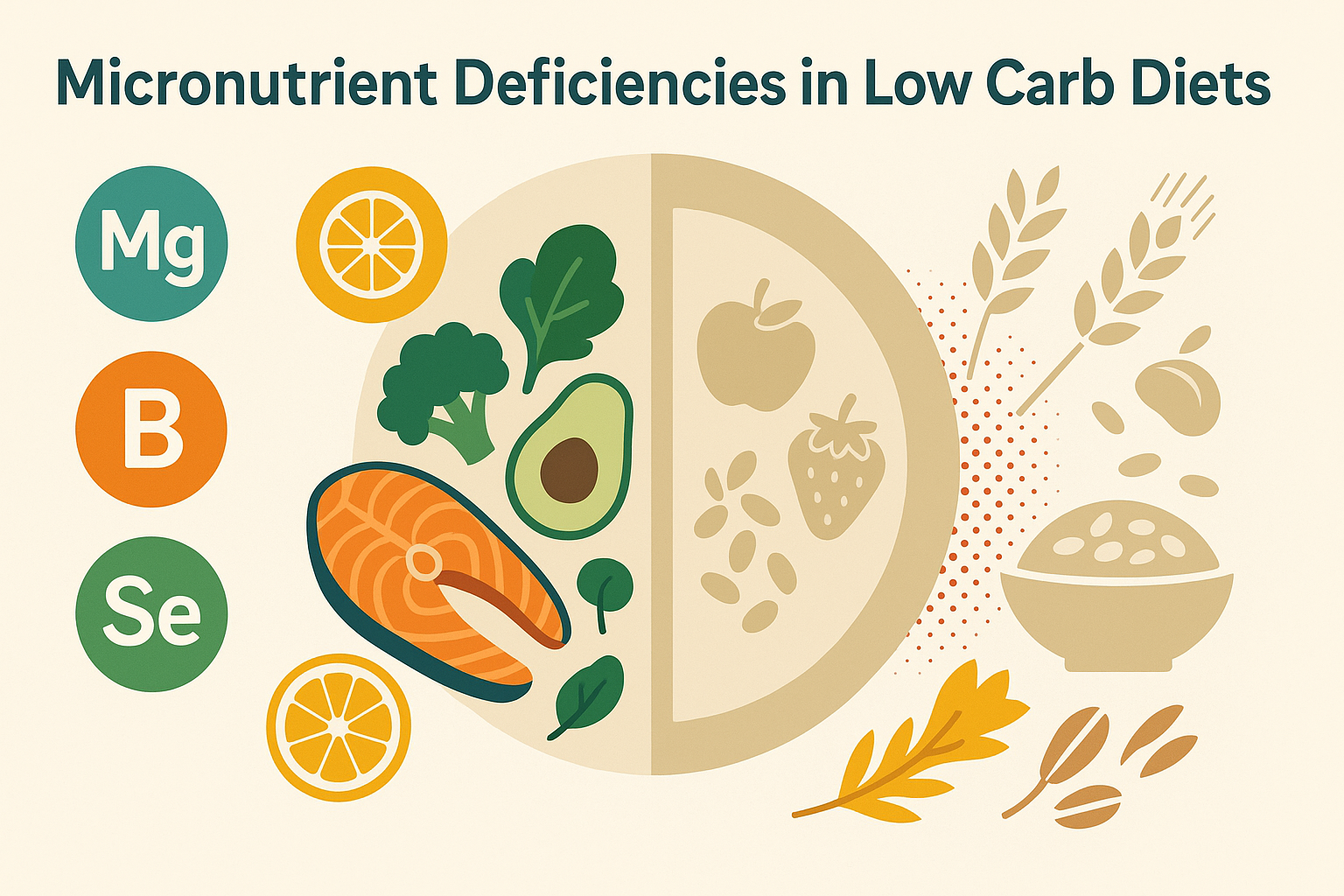In recent years, the surge of interest in low carbohydrate eating has prompted countless individuals to reconsider their nutritional habits. One central question continues to provoke debate among dietitians, fitness experts, and everyday health seekers: is a low carb diet healthy when pursued alongside a high-protein nutrition plan? While proponents tout its ability to promote fat loss and enhance metabolic efficiency, critics point to the potential dangers of low carb diet patterns, especially when misunderstood or improperly executed. This article unpacks the physiological, nutritional, and long-term implications of low carb diets within the context of high-protein nutrition, offering expert insights into the delicate balance between macronutrient manipulation and holistic well-being.
You may also like : The Ultimate Guide to Choosing a High Protein Diet Name That Fits Your Goals

Understanding the Low Carb Diet Paradigm
A low carbohydrate diet typically limits carb intake to between 20 to 100 grams per day, depending on the specific dietary protocol. This restriction aims to induce a metabolic state known as ketosis, in which the body shifts from using glucose to ketone bodies—derived from fat—as its primary energy source. Common examples of such diets include the ketogenic diet, Atkins diet, and modified paleo approaches. These plans generally emphasize increased fat intake, moderate protein, and minimal carbohydrates.
When discussing whether a low carb diet is healthy, context matters immensely. The source of the carbohydrates being reduced—refined sugars versus whole grains, for instance—plays a significant role in how beneficial or detrimental the diet may be. Similarly, the types of fats and proteins consumed in the absence of carbohydrates make a considerable difference. Replacing carbs with processed meats and saturated fats paints a drastically different nutritional picture than substituting them with lean proteins and unsaturated fats.
The Role of Protein in High-Performance Nutrition
High-protein diets are widely recognized for their benefits in muscle synthesis, metabolic rate elevation, and satiety enhancement. Protein’s role in tissue repair and immune function further underscores its essentiality in a balanced diet. When aligned with physical training, high-protein intake helps preserve lean muscle mass during caloric deficits, making it a cornerstone of many fat loss and athletic performance plans.
In low carbohydrate diets, protein often plays an amplified role, not only for muscle maintenance but also as a buffer against energy shortfalls. However, this can lead to a phenomenon known as gluconeogenesis, where the body converts amino acids into glucose to compensate for the lack of carbohydrates. While this mechanism is adaptive, it places metabolic stress on the liver and kidneys, especially when protein intake becomes excessive.

Is a Low Carb Diet Healthy for Long-Term Metabolism?
When evaluating the question “is a low carb diet healthy,” one must consider the long-term metabolic effects. Initially, low carb diets can improve markers of insulin sensitivity, lower triglyceride levels, and contribute to significant weight loss, especially in individuals with metabolic syndrome or type 2 diabetes. These benefits are well-documented and form the basis of clinical recommendations for certain patient populations.
However, low carbohydrate diet risks emerge with prolonged adherence. Extended carbohydrate restriction can result in decreased thyroid hormone production, reduced leptin levels (affecting hunger and metabolism regulation), and potential declines in serotonin synthesis, which depends on carbohydrate availability. This is particularly concerning for women and highly active individuals, whose hormonal balance and energy needs are more vulnerable to macronutrient manipulation.
Carbohydrates and Weight Loss: Understanding the Relationship
The relationship between carbohydrates and weight loss is far more nuanced than simple calorie subtraction. Carbs are the body’s preferred energy source, particularly during high-intensity exercise and cognitive function. Removing them can lead to initial rapid weight loss primarily due to glycogen depletion and water loss rather than fat reduction. This effect often creates a misleading sense of progress that may not reflect actual body composition improvements.
Moreover, the long-term sustainability of low carb diets raises concerns. The restrictive nature can lead to social isolation, increased cravings, and eventual rebound weight gain once the diet is discontinued. A more balanced approach involving moderate carbohydrate consumption from whole food sources may provide similar weight management benefits without the downsides associated with extreme carb restriction.
The Low Carb Advantages: Where This Approach Excels
Despite the criticisms, low carb diets do offer several distinct advantages. For individuals with insulin resistance or polycystic ovary syndrome (PCOS), reducing carbohydrate intake can lead to better glycemic control and hormonal regulation. Many also find that low carb eating curbs hunger more effectively, leading to spontaneous reductions in caloric intake.
Another benefit includes reduced blood pressure and improved lipid profiles in the short term, particularly when carbohydrates are replaced with monounsaturated and polyunsaturated fats. The satiating effects of fats and proteins further enhance dietary adherence, especially in comparison to high-sugar diets that provoke blood sugar spikes and crashes.
Is a Low Carb Diet Healthy When Combined with High Protein Intake?
Combining low carb diets with high protein intake can be synergistic in some contexts, particularly for body recomposition and appetite control. The dual focus on protein and fat for fuel encourages muscle maintenance while promoting fat oxidation. However, care must be taken to avoid excessive protein that surpasses the body’s metabolic processing capacity, which can introduce renal strain and nutrient imbalances.
Moreover, the absence of fiber-rich carbohydrates from fruits, legumes, and whole grains may result in gastrointestinal distress, altered gut microbiota, and reduced micronutrient diversity. The key lies in strategically incorporating low-glycemic vegetables and protein-rich plant foods that provide both fiber and essential phytonutrients.

Low Carb Cons: The Hidden Costs of Restriction
Low carb cons are not always immediately apparent but can become more pronounced over time. Common side effects include fatigue, brain fog, constipation, and mood fluctuations—all linked to reduced glucose availability and electrolyte imbalances. The restrictive nature of these diets can also compromise athletic performance, especially in endurance sports that rely heavily on carbohydrate metabolism.
Furthermore, the psychological burden of strict carb counting and dietary rigidity can lead to disordered eating patterns. Orthorexia—a fixation on dietary purity—often develops among individuals who adopt extreme low carb ideologies, especially when compounded by social media misinformation and anecdotal success stories. These psychological consequences underscore the importance of flexibility and personalization in nutritional planning.
What Happens If You Eat No Carbs for a Week?
Many people experiment with short-term carbohydrate elimination, either as a reset or an attempt at rapid fat loss. But what happens if you eat no carbs for a week? The first few days often involve significant energy dips, headaches, irritability, and dehydration due to the loss of glycogen-bound water. This phase, known as the “keto flu,” is the body’s adaptation to ketone metabolism and typically resolves within a few days.
Beyond the initial symptoms, however, seven days without carbohydrates can disrupt normal digestive rhythms, alter hormonal balance, and reduce athletic output. For those with demanding work schedules or active lifestyles, this sudden drop in glucose availability can lead to poor concentration, impaired decision-making, and reduced physical performance. It’s crucial to recognize that a short-term carb fast is not inherently harmful, but neither is it a sustainable or balanced long-term strategy.
Dangers of Low Carb Diet: Exploring Physiological Risks
While many praise low carbohydrate diets for their initial benefits, the dangers of low carb diet patterns must be evaluated in a broader health context. These risks are often associated with overly aggressive implementation or prolonged carbohydrate restriction without medical supervision. Notably, electrolyte imbalances from reduced insulin levels can lead to sodium and potassium depletion, increasing the risk of muscle cramps, arrhythmias, and fatigue.
Another concern involves increased cholesterol levels in some individuals, particularly when saturated fats are the predominant replacement for carbohydrates. While not universal, this lipid shift can pose cardiovascular risks for genetically predisposed individuals. Additionally, nutrient deficiencies in magnesium, selenium, and certain B-vitamins are more common among those who avoid grains and legumes, calling attention to the need for supplementation or strategic food planning.

Low Carbohydrate Diet Dangers and Their Impact on Gut Health
The gut microbiome thrives on fermentable fibers found primarily in complex carbohydrates. When these are removed or severely limited, the diversity of gut flora can decline, leading to gastrointestinal discomfort, reduced short-chain fatty acid production, and increased intestinal permeability. These low carbohydrate diet dangers are particularly concerning because the gut plays a central role in immune regulation, mental health, and metabolic function.
Emerging research also indicates that low fiber intake may influence inflammatory markers, contributing to chronic conditions such as irritable bowel syndrome (IBS) or inflammatory bowel disease (IBD). While some individuals may initially find relief from gastrointestinal symptoms when avoiding carbs, the long-term consequences of microbiome depletion are increasingly recognized as critical considerations.
Why Is a Low Carb Diet Bad for Some Individuals?
Despite the popularity of low carb eating, it’s crucial to understand why is a low carb diet bad for certain individuals. For example, those with thyroid disorders, adrenal insufficiency, or high physical activity levels often fare poorly on low carb regimens. Carbohydrates play a pivotal role in hormonal balance, including cortisol and insulin regulation, and their absence can lead to maladaptation.
Women, in particular, may experience disrupted menstrual cycles and fertility challenges when carbs are consistently too low. This is especially true for athletes and those with low body fat percentages, where energy availability becomes a key determinant of hormonal stability. Similarly, older adults may face muscle loss and cognitive decline if protein intake is not carefully balanced with accessible energy from carbohydrates.
Low Carb Diet Risks in Cardiovascular and Cognitive Health
Low carb diet risks extend beyond immediate metabolic shifts. Over time, insufficient carbohydrate intake may affect cognitive performance, especially in tasks requiring memory, focus, and decision-making. Glucose is the brain’s primary energy source, and while ketones can serve as an alternative, they may not fully support the brain’s high energy demands during prolonged intellectual activity.
On the cardiovascular front, diets high in animal fats and low in plant-based nutrients may elevate low-density lipoprotein (LDL) cholesterol and reduce arterial elasticity. These factors contribute to increased cardiovascular risk, especially in individuals with pre-existing lipid disorders. To mitigate these risks, low carb plans must prioritize heart-healthy fats, such as olive oil, nuts, and fatty fish, while maintaining adequate fiber intake through non-starchy vegetables.
Reconsidering the Balance: Personalized Nutrition Over Dogma
Given the wide-ranging effects of carbohydrate restriction, personalized nutrition emerges as a more effective and sustainable approach than rigid diet templates. Instead of asking broadly “is a low carb diet healthy,” the better question may be: “Who benefits most from this strategy, and under what circumstances?” Factors such as age, gender, medical history, activity level, and genetic predisposition should guide dietary decisions, not viral diet trends or one-size-fits-all protocols.
A truly healthy diet is one that aligns with both physiological needs and personal preferences. For some, that may mean a moderately low carbohydrate intake rich in lean proteins, colorful vegetables, and heart-healthy fats. For others, higher carbohydrate consumption from legumes, fruits, and whole grains may better support cognitive function, hormone balance, and overall vitality. The key is flexibility, informed by evidence and individual experience.

Athletic Performance and Carb Periodization
Many athletes experiment with low carb diets in pursuit of enhanced fat adaptation and endurance. While the body can indeed shift toward using fat as fuel, high-intensity, anaerobic efforts rely primarily on glycogen—the stored form of carbohydrates. Studies show that low carb diets can impair performance in activities requiring explosive strength, speed, or sustained power.
To address this, some athletes adopt carbohydrate periodization, in which carb intake is increased around training sessions and reduced during rest days. This method supports performance while maintaining some benefits of fat adaptation. The strategic use of carbs helps replenish muscle glycogen, reduces post-workout fatigue, and optimizes recovery—critical factors for anyone seeking to balance high-protein nutrition with peak athletic output.
Hormonal Health and Gender Differences
Another critical layer in the “is a low carb diet healthy” debate is the impact on hormonal health, particularly for women. Research shows that chronic low carbohydrate intake can interfere with ovulation, reduce estrogen levels, and increase the risk of hypothalamic amenorrhea—especially in physically active women or those with low body fat.
Men, while generally more resilient to carb restriction, can still experience declines in testosterone when energy availability is too low. Both genders may encounter sleep disturbances, mood swings, and thyroid dysfunction when combining intense training with prolonged carb avoidance. Understanding these differences is essential when designing high-protein, low carb nutrition plans.
Cultural Influences on Carbohydrate Tolerance
Cultural dietary patterns offer valuable insights into human adaptability to carbohydrates. Populations in Okinawa, Japan, for instance, have long consumed a diet high in sweet potatoes and rice yet maintain low rates of chronic disease and exceptional longevity. Conversely, Arctic populations such as the Inuit historically thrived on high-fat, low-carb diets consisting mainly of fish and animal fats.
These variations highlight the adaptability of the human metabolism to a wide range of macronutrient profiles. It also underscores that the answer to “is a low carb diet healthy” is inherently tied to historical dietary norms, regional food availability, and generational adaptations. A one-size-fits-all approach overlooks the resilience and diversity of traditional eating patterns.
Ketones Beyond Energy: Cognitive and Therapeutic Implications
One lesser-known advantage of carbohydrate restriction is the production of ketone bodies, particularly beta-hydroxybutyrate (BHB). While primarily seen as an alternative fuel source, BHB also exerts signaling effects at the cellular level. It has been shown to reduce inflammation, improve mitochondrial function, and increase expression of brain-derived neurotrophic factor (BDNF), which supports cognitive function.
Clinical research is exploring the therapeutic potential of ketogenic diets in neurological conditions such as epilepsy, Alzheimer’s disease, and even certain cancers. For individuals with these conditions, low carb diets may offer far more than metabolic benefits; they may be part of a broader neuroprotective and anti-inflammatory strategy.
Genetic Variability and Carbohydrate Metabolism
One of the most significant and underappreciated variables in determining whether a low carb diet is healthy is genetic individuality. Nutrigenomics—the study of how genes influence nutritional response—has shown that individuals possess different variants of genes that affect carbohydrate metabolism, insulin sensitivity, and fat oxidation. For example, the AMY1 gene determines the number of salivary amylase enzymes available to begin carbohydrate digestion. People with more copies of this gene often tolerate high-carb diets better.
Similarly, polymorphisms in the FTO gene have been linked to obesity risk and appetite regulation. For some individuals with this variant, a high-protein, low carb diet may help offset increased hunger and metabolic inefficiency. These genetic markers are gradually becoming tools.
Intermittent Fasting and Low Carb Synergy
Intermittent fasting (IF) has surged in popularity and is often paired with low carb diets. The rationale is that both approaches stimulate autophagy, improve insulin sensitivity, and encourage fat oxidation. For individuals pursuing weight loss or metabolic health, this combination can enhance adherence and amplify results.
However, IF adds another layer of stress to the body. When combined with a low carb, high-protein diet, fasting may increase cortisol levels, suppress thyroid function, and disrupt sleep if not properly managed. Monitoring energy levels, sleep quality, and hormonal markers is essential when combining these two powerful nutritional strategies.

Environmental Sustainability and Ethical Considerations
The typical high-protein, low carbohydrate diet often relies heavily on animal products. While effective from a physiological standpoint, it raises questions about environmental sustainability and ethical food sourcing. The production of beef, for example, requires significantly more water and land than plant-based protein sources and contributes more greenhouse gas emissions.
Balancing health goals with environmental awareness requires incorporating more sustainable protein options. These may include eggs, dairy, legumes (where tolerated), tofu, tempeh, and insects—yes, insect protein is an emerging solution to the sustainability problem. Even for those on low carb diets, integrating environmentally friendly protein sources is possible with thoughtful planning.

Micronutrient Deficiencies in Low Carb Diets
Though macronutrients dominate public discourse, micronutrients often fall by the wayside. A low carbohydrate diet, particularly one that excludes grains, legumes, and fruits, can lead to deficiencies in essential vitamins and minerals. Magnesium, for instance, is involved in over 300 biochemical reactions and is commonly deficient in low carb dieters due to reduced intake of whole grains and legumes.
Another concern is vitamin C, primarily found in fruits like oranges and strawberries. While non-starchy vegetables do provide some vitamin C, they may not meet optimal levels if portions are limited. B vitamins, particularly B6, B9 (folate), and B1 (thiamine), may also decline with reduced intake of whole grains. Long-term deficiencies in these nutrients can compromise energy production, immune health, and neurological function.
The Modified Low Carb Diet: A More Sustainable Compromise
For those intrigued by the benefits of carbohydrate restriction but wary of the low carbohydrate diet risks, a modified approach may provide a suitable middle ground. This includes cyclical low carb strategies (e.g., carb cycling), targeted carbohydrate intake around workouts, or simply reducing added sugars while retaining whole food carbs. These methods preserve metabolic flexibility while supporting gut health, hormonal balance, and lifestyle adherence.
Furthermore, integrating a diversity of protein sources—including plant-based options like lentils, quinoa, and tofu—can provide essential micronutrients often lacking in traditional low carb diets. This hybrid model encourages nutrient density, variety, and long-term sustainability, aligning better with modern understanding of personalized health optimization.
Reframing the Low Carb Conversation
The binary framing of carbs as either “good” or “bad” oversimplifies a complex issue. Rather than asking if all carbs are harmful, a better question is: which types, in what quantities, and at what times, optimize health outcomes for specific individuals? Whole food carbohydrates—such as oats, quinoa, lentils, and root vegetables—provide essential nutrients and energy without the metabolic chaos associated with processed sugars.
Understanding this distinction allows for a more balanced approach to high-protein nutrition. Instead of vilifying entire macronutrient groups, the focus shifts toward quality, timing, and personalization. This reframing empowers individuals to make informed decisions grounded in evidence rather than ideology.
FAQ: Advanced Insights Into Low Carb Diets, Risks, and Long-Term Health Effects
1. Why do some people feel mentally foggy or emotionally irritable on a low carb diet?
When beginning a low carbohydrate eating plan, many people report feeling irritable, mentally sluggish, or even mildly depressed. This shift is largely due to the sudden drop in glucose—the brain’s preferred energy source. Since carbohydrates directly fuel serotonin production, a reduction in carbs can decrease serotonin levels, temporarily impacting mood regulation. While some individuals adapt over time, others experience persistent emotional lows, raising concerns about low carb diet risks for mental health. This connection is particularly pronounced in people with anxiety or depressive tendencies, highlighting one of the lesser-discussed negatives of low carb diet approaches that focus solely on weight loss.
2. Is a Low Carb Diet Healthy When It Reduces Fiber Intake? Exploring the Overlooked Digestive Consequences
Fiber plays a critical role in maintaining gut health, regulating blood sugar, and supporting satiety. However, many low carb diets reduce or eliminate fiber-rich foods like whole grains, legumes, and fruits, which can lead to constipation and reduced microbiome diversity. This alteration in gut bacteria composition has been linked to inflammation and even mood disorders. While low carb advantages like rapid weight loss often receive attention, gastrointestinal health is frequently ignored in the discussion. For long-term wellness, fiber intake must be preserved through low carb-friendly sources such as chia seeds, avocado, and flax, otherwise the diet may contribute to low carb diet harmful effects on digestion and immunity.
3. What are the metabolic risks of following a zero-carb or extremely low-carb diet?
One of the most critical low carbohydrate diet dangers is metabolic inflexibility. While a mild reduction in carbohydrates can promote fat adaptation, going to the extreme—such as following a zero-carb plan—can impair thyroid function and reduce resting metabolic rate over time. This phenomenon, often seen in those adhering to ketogenic or carnivore-style eating for extended periods, may cause cold intolerance, fatigue, and hair thinning. The dangers of no carb diet practices lie in how they push the body into a prolonged stress state, raising cortisol levels and possibly contributing to insulin resistance. Understanding these risks underscores why is a low carb diet bad when it ignores the body’s long-term need for metabolic balance.
4. How do low carbohydrate diets impact hormonal health in women?
Women’s hormonal systems are especially sensitive to caloric restriction and macronutrient imbalances. When carbohydrate intake dips too low, the hypothalamic-pituitary-gonadal axis may be disrupted, potentially leading to irregular periods, infertility, or worsened PMS. The cons of low carb diet regimens in female physiology often stem from decreased leptin and insulin levels, both essential for signaling ovulation and reproductive health. In active women or those with pre-existing hormonal conditions, low carb risks may manifest faster and more severely. Therefore, even with the potential low carb advantages, women should monitor reproductive changes closely when reducing carbohydrate intake.
5. Is a Low Carb Diet Healthy for Long-Term Cognitive Performance and Brain Aging?
The brain primarily runs on glucose, and while it can adapt to ketones during carbohydrate restriction, this adaptation may come at a cost. Over long periods, low glucose availability can impair cognitive flexibility and memory retention, especially in aging individuals. Some preliminary research even suggests a link between chronic low carb intake and accelerated hippocampal atrophy. These findings highlight the low carbohydrate diet risks that may not manifest immediately but have implications for long-term brain health. Thus, is a low carb diet healthy over the course of decades? The answer remains uncertain and likely depends on genetic predispositions and individual lifestyle factors.
6. What are some real-world social and psychological negatives of low carb diet adherence?
Strict dietary boundaries often lead to social isolation, food guilt, or even disordered eating patterns. The negatives of low carb diet lifestyles include the constant need for food vigilance, challenges dining out, and the emotional toll of perceived “failures” when carbs are consumed. Over time, this rigidity may foster an unhealthy relationship with food, increasing the risk of orthorexia. These psychological low carb cons rarely make headlines, but they affect countless individuals who feel pressure to maintain perfection. Addressing the emotional aspect is crucial to ensure sustainable, psychologically sound eating habits.
7. What happens if you eat no carbs for a week in a high-stress environment?
Attempting a no-carb regimen while under significant stress can compound physiological strain. Carbohydrates play a vital role in cortisol regulation, and in their absence, stress hormone levels may remain chronically elevated. This can lead to poor sleep, elevated heart rate, and reduced recovery from exercise or illness. What happens if you eat no carbs for a week in this context isn’t just about energy depletion—it’s a complex cascade of hormonal and nervous system dysregulation. While short-term fasts from carbs may benefit some, applying such dietary practices without regard for mental stress load increases the dangers of no carb diet implementation.
8. How can athletes and highly active individuals suffer from low carb diet risks?
Athletes require glycogen for peak performance, endurance, and muscle recovery. Restricting carbs too much can impair training intensity, increase perceived effort, and delay muscular repair. In this population, low carb diet harmful outcomes include reduced VO₂ max, slower sprint performance, and even greater injury susceptibility due to decreased tissue resilience. While some low carb advantages like fat adaptation exist, they often come at the cost of anaerobic performance metrics. Thus, for competitive or endurance athletes, the low carbohydrate diet risks may outweigh the benefits unless strategically timed and cycled.
9. Why is a low carb diet bad for long-term bone health?
Emerging research suggests that acidic diets—especially those high in animal proteins and low in plant-based buffers—can leach calcium from bones to maintain blood pH. Since many low carb diets reduce fruits and whole grains while emphasizing meats and cheeses, they may increase calcium excretion and decrease bone mineral density. Over time, this dietary pattern could contribute to osteoporosis or increase fracture risk, particularly in postmenopausal women. This makes low carbohydrate diet dangers more insidious, as bone loss is often silent until advanced stages. Understanding why is a low carb diet bad for skeletal integrity helps emphasize the need for more balanced approaches that protect long-term musculoskeletal health.
10. What are safer strategies to avoid low carb diet risks while still reducing sugar?
Rather than eliminating all carbs, a moderate reduction emphasizing complex, fiber-rich sources can help achieve balanced results. Choosing lentils, sweet potatoes, berries, and steel-cut oats allows one to lower sugar intake without triggering the low carb cons associated with extreme restriction. This method supports metabolic flexibility and provides enough glucose to maintain cognitive and hormonal function. For those focused on carbohydrates and weight loss, pairing low-glycemic carbs with protein and fat is a sustainable alternative. By avoiding the extremes, individuals can sidestep low carb risks while still achieving their health goals.
Conclusion: Making Informed Choices About Carbohydrates and Protein
The debate around carbohydrate restriction is far from settled, but what remains clear is that no dietary approach should be divorced from context. The question “is a low carb diet healthy” cannot be answered in isolation; it must be weighed against individual health status, goals, and lifestyle demands. While low carbohydrate diets offer compelling advantages for specific populations, they also introduce significant risks—particularly when executed without attention to nutrient balance and long-term sustainability.
Understanding the nuanced relationship between carbohydrates and weight loss, protein metabolism, and hormonal health allows for more informed and personalized nutritional strategies. Rather than adopting extreme dietary doctrines, individuals are best served by approaching nutrition as a dynamic and adaptive practice—one that evolves with their needs, preferences, and evidence-based guidance. In this light, high-protein nutrition can indeed coexist with thoughtful carbohydrate moderation, forging a path toward vitality that is both effective and sustainable.
Further Reading:
The Truth About Low-Carb Diets
Low-carbohydrate diets: what are the potential short- and long-term health implications?





